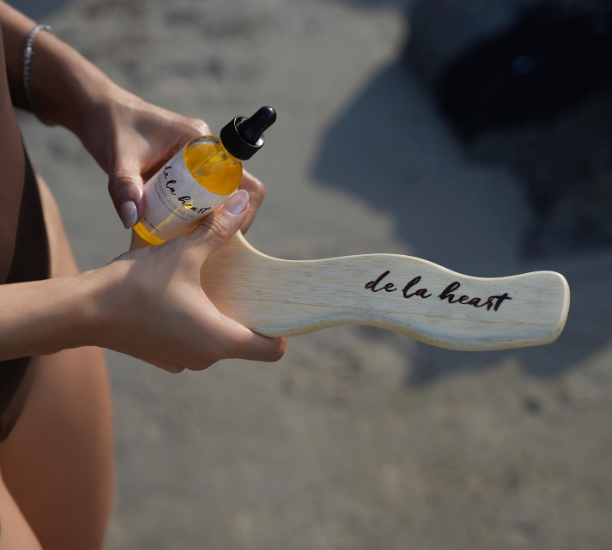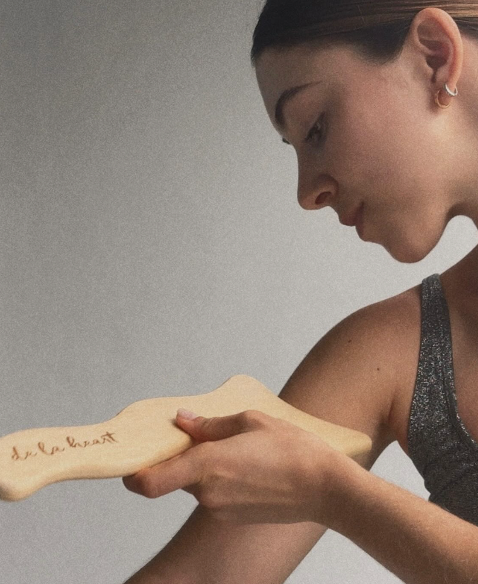VOTING 101 with Delaheart & Olee Fowler
With so much happening in the world, our elections are more important than ever. And while most people are focused on the November election, there’s an equally as important election happening in Florida in just a few days' time -- the Florida primary. So below I break down for you why this election is so important, all the different ways you can vote, and how to pick a candidate that best aligns with your values.
Why This Florida Primary is So Important
Many of the big elections are for the mayor and county commission seats. The mayor and the 13 people that make up the Miami-Dade county commission oversee a 9 BILLION dollar annual budget. They decide on things that impact our daily lives from setting highway tolls, to funding public health and cultural facilities, the creation of housing and transportation projects, they even can oversee police reform. As the saying goes: local elections are national elections, and if you want to make a change in your world you need to start at home. So while more of the media focus is toward the President and national lawmakers, most decisions that impact the day-to-day life of Miami citizens are made by this commission and the mayor.
Plus, for the first time ever Miami now has term limits. In 2012 the Miami-Dade County Commission voted for term limits for its members, which is now two, four-year terms. Meaning in 2020 many people who have held their commission seats for more than a decade can’t run again — which is ushering in a slew of new exciting candidates to oversee our county and how it’s run.
There are 7 of the 13 commission seats up for election this cycle, along with a very important Mayoral race, as our current Mayor Carlos Gimenez is also being termed out.
Elections for Miami-Dade mayor and county commission are non-partisan and anyone from any party can vote in them. If any candidate gets 50% + 1 of the vote during this primary they are declared the winner and there is no run off in November. So the word primary is a bit of a misnomer in this regard, as most of these important local elections will be decided upon in August.
Elections for seats like local and state representatives are considered closed primaries, meaning only people in their respective party can vote in this primary. So if you’re a registered Democrat you can only vote for Democrats, and so on. In November, you’ll be able to vote for everyone no matter the party, but that’s not the case for this primary.
How to Vote: The Basics
Tuesday, August 18 is Florida’s primary election day and you can check your registration status here. On that day you must go to your assigned polling place, which you can find here. Polls will be open from 7 a.m. to 7 p.m. As long as you are in line for the polls by 7 p.m., you are allowed to stay in line and vote even though the polls have closed -- and don’t let anyone tell you otherwise!
Make sure to bring a proper form of ID or you won’t be allowed to vote. Also, make sure you are familiar with the ballot beforehand, which will help speed up the process. Find a sample ballot here based on your district.
And yes, you must wear a mask at all times at the polling stations -- so don’t leave home without one!
Early Voting Has Already Begun!
Early voting has begun and runs daily through Sunday, August 16. During this time you can vote at any of the 23 polling stations within the county — it doesn’t have to be just your designated polling place. Here’s the list of the early voting sites and schedule.
You will need a government issued ID, here is a list of acceptable forms of ID to bring.
Lines at all the polling stations are spaced out in a socially distant manner and masks are required for everyone in the space.
Vote-by-Mail: All Your Questions Answered
As Florida is still a hotspot for the coronavirus, most people are turning to vote-by-mail (VBM) for the first time. To be honest, I’ve been voting this way since I was 18 (which was…. a while ago now) and absolutely love it. No lines and no commute are always a plus in my book!
The deadline to register to vote-by-mail has already passed for this August 18 primary, but there is still time to request your VBM ballot for the November elections. You can request one here, and it takes less than 5 minutes to do.
People tend to be uneasy about vote-by-mail for a number of reasons, but it has a lot of checks and balances. Once you’ve mailed in your VBM ballot (no need for a stamp -- postage is covered!) you can track it through this site to make sure it’s been received. Now this is important: make sure your signature MATCHES the signature on your license, or ID that you use. Otherwise it could get disqualified and not count. This is due to a controversial system Florida has installed in order to prevent voter fraud (which FYI: isn’t really an issue).
If you have a mail-in-ballot at home still, it’s time to get that sucker in the mail ASAP! It must be received by 7 p.m. on Election Day in order to be counted. The United States Postal Service is currently going through a lot of budget cuts and mail is currently being delayed nationwide because of them. Thousands of ballots weren’t counted in the last election because they got to the elections department too late — don’t let yours be one of those! To be safe, get it in the mail by August 12.
(And make sure to circle October 13 in your calendar as the date to turn in your VBM ballot for the national November election, as they are anticipating a historic number of VBM to be received and there will most certainly be delays.)
So say you don’t get your ballot in the mail by August 12, what do you do then? Well you can actually drop your VBM off at one of the 23 early polling stations around the county. There is a designated box as each polling site just for VBM ballots. Just show your ID and drop it in the box, no need to wait in line. However, you can only do this until August 16. You cannot drop your VBM off on election day. And say you get the absolute urge to vote in person even though you have a VBM ballot at home? That’s ok too! You just need to sign an affidavit when you get to the polling station that you will not use your VBM.
How to Choose a Candidate
There are several ways to research the candidates using non-partisan sites like Vote Miami, Engage Miami, and Ballotpedia, all have good breakdowns of the issues and where the candidates stand.
I would suggest deciding on the issues that are most important to you, and then learn which groups support them and what candidates they are backing. For instance, if environmental concerns are on the top of your list check out the Sierra Club endorsements, for those focused on education the United Teachers of Dade has put together their endorsed list, for those who want to support getting more female lawmakers in office Ruth’s List Miami has its endorsed candidate list, and so forth. Most of these groups interview all the candidates and research their track record on past votes and involvement before endorsing them to ensure their values line up with the organization’s values.
And while the commission, mayoral, and school board races are technically nonpartisan the local Democrat and Republican parties have given their seal of approval on select candidates. The Miami Herald and the Sun-Sentinel also publish their endorsements, which are generally highly regarded within the community.
So now that you're geared up with all the information, it’s time to get out the vote!
Written by Olee Fowler
About Olee Fowler - Olee Fowler is a South Florida native and longtime political advocate, volunteering with a multitude of political campaigns and organizations over the past 15 years. She is also a longtime journalist covering the ins and outs of Miami’s food scene with Eater Miami.






